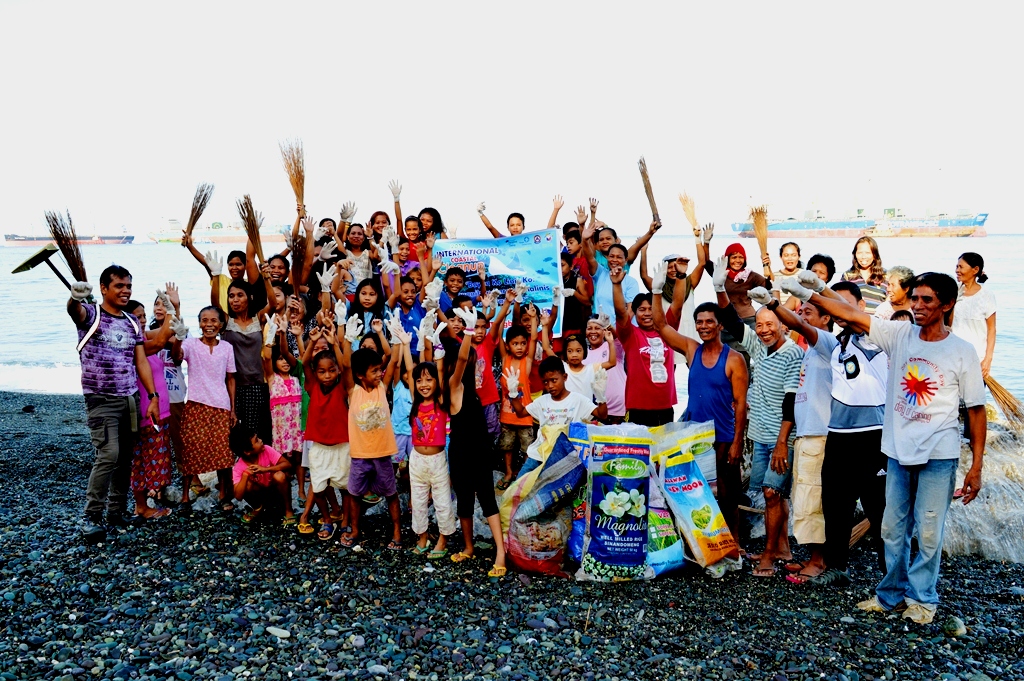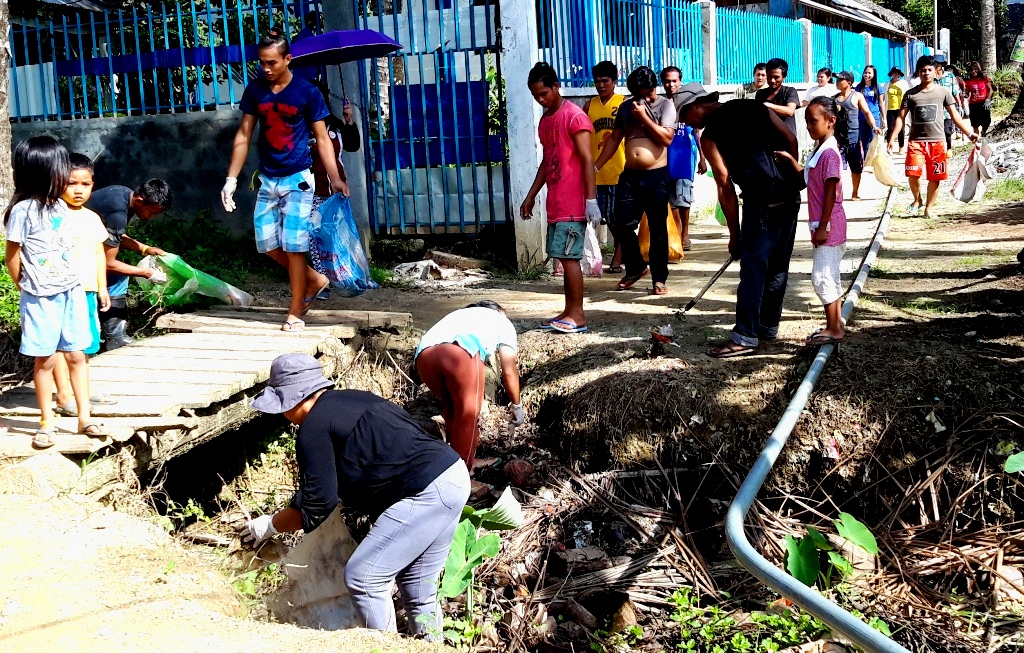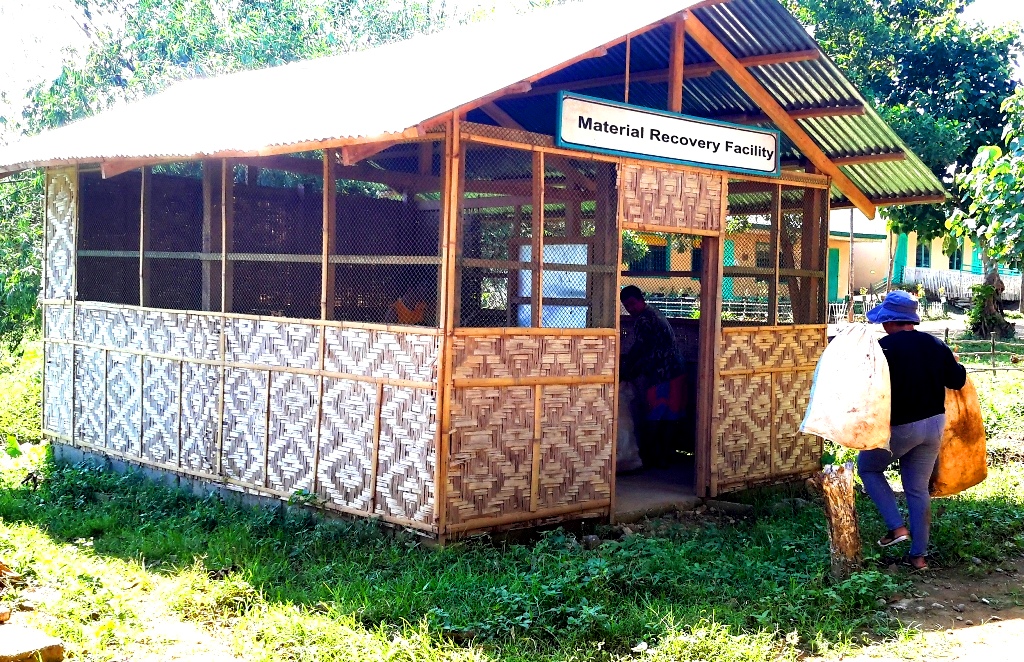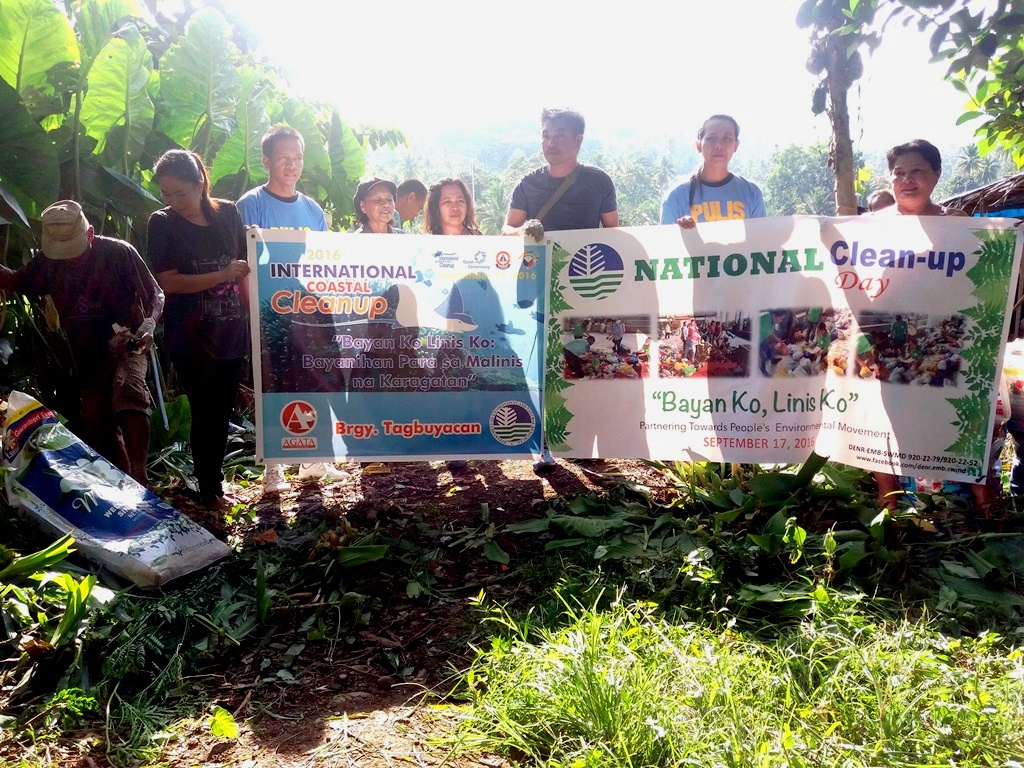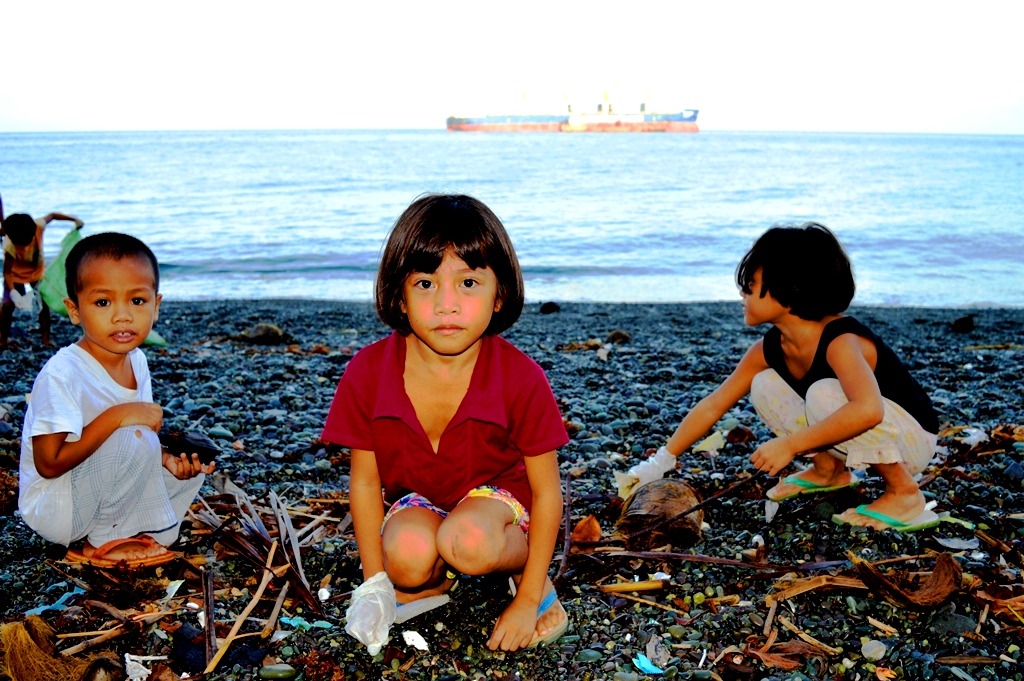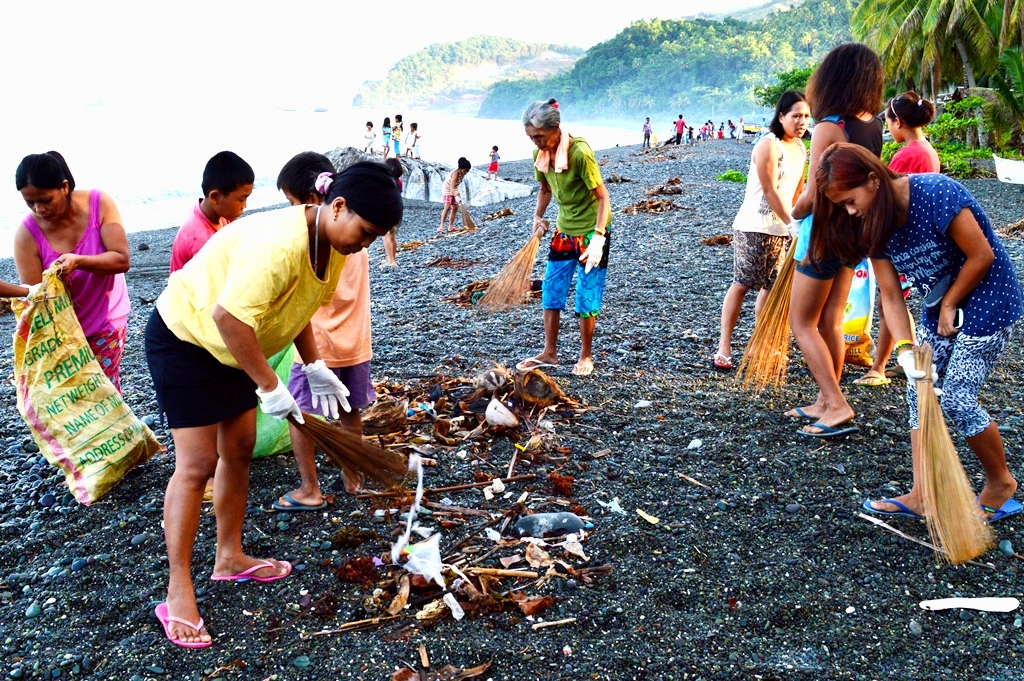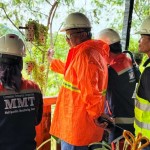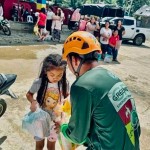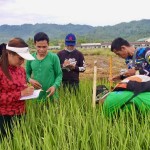-
The coast is clean. The fisherfolk community in host Barangay Tinigbasan declares its resolve to keep their coastal area free of pollution – testament to proper solid waste management fosterd by AMVI in the community.
-
“Bayanihan” in Barangay E. Morgado. Residents go beyond their backyard to clean the waterways near Kalinawan River – a 29-kilometer tributary adopted by the company and which runs through its MPSA area.
-
The Material Recovery Facility in Barangay E. Morgado is one of AMVI’s functional outposts for implementing solid waste management in its communities.
-
Multi-sectoral responsibility. The coastal cleanup in Barangay Tagbuyacan spearheaded by Hon. Carlito Balinos (center) engaged personnel from the DENR-PENRO and the Philippine National Police.
-
For healthier generations. Children participate with their parents in Barangay Tagpangahoy. The activity aims to instill the right values and cultivate an environment-friendly attitude among the youth.
-
Housekeeping. Women and children spend their morning along the coastline in Barangay Tinigbasan – one of AMVI’s host communities in the municipality of Tubay, Agusan del Norte.
Coastal and Riverside Communities conduct cleaning and garbage collection along coastal area
Tubay, Agusan del Norte / October 2016 – The six coastal and riverside communities of Agata Mining Ventures, Inc. (AMVI) – a joint nickel laterite project of TVI Resources Development Inc. (TVIRD) and MRL Nickel Philippines Inc. (MRL), once again joined the global observance of the International Coastal Clean-up last 17 September 2016 along with the Department of Environment and Natural Resources (DENR), other government agencies and local barangay officials.
In line with the company’s advocacy for proper environmental management through waste management and segregation, key officers and staff engaged in simultaneous clean-up activities in Barangay Tagbuyacan and E. Morgado in Jabonga Municipality, and in Barangays Tinigbasan, Tagpangahoy, Binuangan, and Lawigan in Tubay Municipality – all in the province of Agusan del Norte.
The International Coastal Cleanup is the world’s largest annual volunteer effort for the ocean’s health. Over the past 30 years, volunteers from 153 countries have shown their enduring alliance for trash-free seas.
Clear waters
Agata’s commitment towards responsible mining also lies in sharing awareness and implementing its waste management programs down to the community level. During the event, AMVI personnel engaged the communities in cleaning the coastal and riverside areas within its 4,995-hectare Mineral Production Sharing Agreement (MPSA) area.
In the municipality of Santiago, Communication Officer Julius M. De Villa and Engineering staff Reneliza Pojas of AMVI led the riverside community in Barangay Tagbuyacan in the clean-up activities together with Barangay Captain Carlito Balinos. They are joined by residents, personnel from the Philippine National Police and the DENR’s Provincial Provincial Environment and Natural Resources Office (PENRO) in gathering 122 kilograms of waste and improving the barangay’s landscape.
E. Morgado Barangay Captain Lucita Estrada likewise rallied close to 50 volunteers together with five AMVI personnel in collecting 58 kilograms of waste along the riverside area.
“Solid waste management is about creating a personality and attitude towards health and sanitation,” said Hon. Balinos. “It starts and ends within every community.”
Barangays get involved
Meanwhile, simultaneously cleaning activities in host coastal communities in Tubay were led by Barangay Captains Nelmar Mangmang in Tagpangahoy, Dante Mandam in Tinigbasan, Nilo Mordeno in Lawigan, and the Barangay Council of Binuangan. More than 200 residents were mobilized and collected over 3.5 tons of waste segregated into: 67% biodegradable, 20% recyclable, 12% residual and 1% special waste.
“AMVI’s responsible mining efforts is very inspiring that with the great challenge of waste management in our community, the task of sharing and convincing every resident to conduct segregation, recycling and proper disposal of garbage becomes possible,” according to Hon. Mandam. “If AMVI, a big company, observes proper waste management process, then we must also do so in our households.”
Global effort
Held every third Saturday of September, the International Coastal Cleanup gathers volunteers from around the world to participate in clearing tons of garbage from coastlines, rivers and lakes and recording every piece of trash collected. It aims to engage people in removing rubbish and other debris from beaches, waterways and other bodies of water, identifying sources of debris, changing behaviors that cause pollution and raising awareness towards the extent of the problem and aid in better-informed policy decisions as well as improved solid waste management programs.
According to 2015 reports, close to 800,000 volunteers from 92 countries and locations participated in the event. They picked up 8,193,200 kilos of marine debris, covered 40,538.8 kilometers of beaches, waterways and underwater areas and collected a total of 13,806,887 debris items.
Beyond cleaning up efforts
The yearly coastal clean-up activity is aligned with AMVI’s commitment to prevent the pollution of the environment and is guided by TVIRD’s advocacy towards responsible mining.
AMVI engages its communities through Information, Education, and Communication (IEC) activities on the importance of solid waste management and how pollution can affect bodies of water as well as people’s sanitation and health.
The company’s Environment Department also promotes its solid waste management program by encouraging every barangay to recycle waste materials, observe segregation and install compost pits and communal gardens in their vicinity.
Every year, the company provides incentives for the cleanest purok in every barangay. A mini-junkshop was also established to centrally collect rubbish and sell these to junkyards for additional income.
*******

